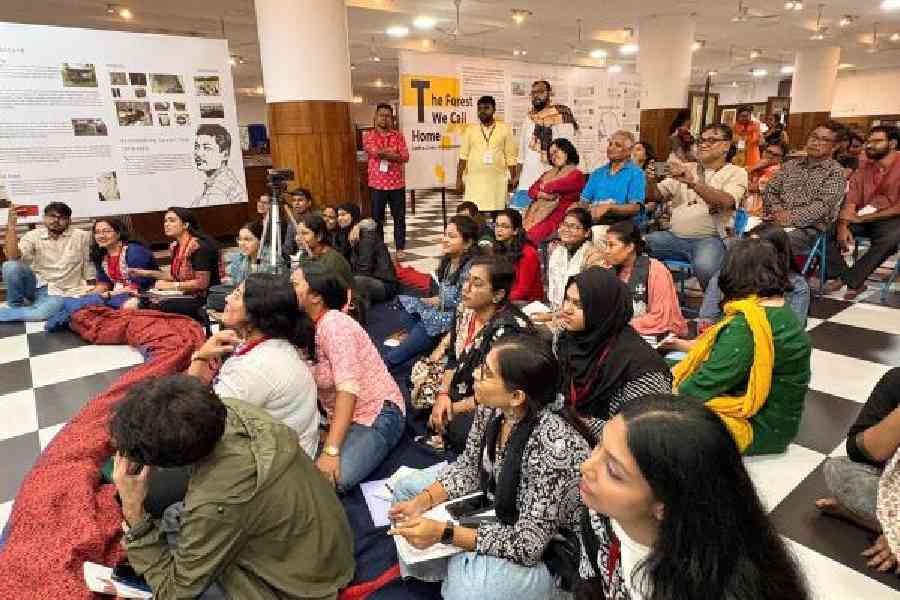Translation and tribal tongues


Between November 17 and 22, the walls of the Asutosh Museum of Indian Art, University of Calcutta, witnessed something extraordinary. The Centre for Translation and Literary Geography of the University of Calcutta organised a six-day workshop and exhibition that became a living bridge between the vanishing worlds of the Lodha and Toto communities and contemporary consciousness. Titled, Field to Folio: Translating Lodha and Toto Cultural Texts, it brought together scholars, translators, and Lodha and Toto language experts and cultural practitioners in an urgent act of cultural preservation.
Mrinmoy Pramanick (in pic right) — assistant professor at Calcutta University’s comparative Indian language and literature department and convenor — and his team worked out every detail. The inaugural session set the tone, with Gujarati author Kanji Patel affirming that this was a critical intervention in the Indian linguistic ecosystem. What elevated this gathering beyond academic programming was its embrace of performance and practices by the Lodha and Toto communities.
The intention of the workshop was collaborative translation wherein the translator and the translated engaged in a dialogue. The Sabar Pala Gaan and Lalita Sabar Pala performances were not entertainment interludes but essential texts in themselves, demanding translation not just of words but of rhythm, gesture and cultural memory.
When lexicographer Bhakta Toto and poet Divya Toto shared their insights, these were not abstract case studies of literary works. With less than 1,600 people speaking Toto, each conversation represented a lifeline to a knowledge that could well disappear within a generation. The presence of representatives from Kandamul Patrika, a publication by and for the Lodha community, reinforced the principle that indigenous communities are not only subjects of study but collaborators in their own narrative preservation.
The next few days, participants moved from theory to practice, from observation to active translation. There were sessions with folklorist Mahendra Mishra, drama specialists including Tarun Kumar Pradhan and Fatik Midya, and museologists such as Indrani Bhattacharya.
The genius of the workshop lay in its refusal to separate intellectual work from embodied experience.
Sudeshna Ghosh,
Research assistant, Centre for Translation and Literary Geography, Calcutta University